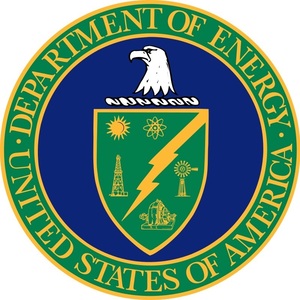DOE offers $34.5M for bioenergy resource recovery, conversion

March 22, 2022
BY U.S. Department of Energy
Today, the U.S. Department of Energy announced a new $34.5 million funding opportunity to improve the current science and infrastructure for converting waste streams, often disproportionately located in underserved communities, into valuable biofuels and bioproducts that can benefit the local energy economy. This effort will advance the Biden Administration’s goals to deliver an equitable, clean energy future, and put the United States on a path to achieve net-zero emissions, economy-wide, by no later than 2050.
“This investment represents DOE’s commitment to finding solutions that directly support historically underserved communities,” said Principal Deputy Assistant Secretary for Energy Efficiency and Renewable Energy Kelly Speakes-Backman. “We recognize the everyday economic and logistical burden that waste disposal can have on these communities. Through this investment, we see an opportunity to support the bioeconomy and the equitable transition to a clean energy economy.”
Waste streams, including municipal solid waste, animal manure, wastewater residuals, and other organic wastes, are a key feedstock for producing biofuels and bioproducts. However, these waste streams can be an economic liability to the communities managing them and often lead to a multitude of health impacts on surrounding populations.
Advertisement
The FY22 Waste Feedstock and Conversion R&D Funding Opportunity Announcement (FOA) is for the development of improved organisms and inorganic catalysts to support the next generation of low-carbon biofuels and bioproducts. It supports the development of high-impact R&D to accelerate the growth of the bioeconomy and improve the economic and technical viability for turning burdensome and costly waste streams into valuable bioenergy resources.
In particular, DOE will fund projects that help enable waste feedstocks utilization and robust conversion processes to produce low-carbon biofuels that reduce emissions from hard-to-decarbonize sectors such as aviation. This effort is complementary to the Sustainable Aviation Fuel Grand Challenge, a government-wide effort which aims to achieve a zero-carbon aviation sector by 2050.
The FOA has four topic areas:
1. Municipal Solid Waste Feedstock Technologies
2. Robust Microbial Cells
3. Robust Catalytic Processes
4. Community Scale Resource and Energy Recovery from Organic Wastes
Advertisement
Concept papers for this FOA are due by April 18, 2022, at 5 p.m. ET. Applications are due by June 07, 2022, at 5 p.m. ET. An informational webinar will be held on March 31, 2022 (registration link coming soon). View more information about this FOA on EERE Exchange, or email FY22FeedstockConversionFOA@ee.doe.gov with questions.
Related Stories
Avfuel Corp., the leading independent supplier of aviation fuel and services, is expanding its sustainable aviation fuel (SAF) footprint with the addition of a new, strategic supply point in Denver, Colorado—the first of its kind in the region.
CVR Energy Inc. on July 30 reported its renewables segment achieved increased throughput during Q2 despite unplanned downtime but reported a net loss of $11 million. The company expects to retroactively claim the 45Z credit for volumes produced.
Total U.S. operable biofuels production capacity expanded in May, with gains for renewable diesel and a small decrease for ethanol, according to data released by the U.S. Energy Information Administration. Feedstock consumption was up.
SAF-producer XCF Global Inc. on July 28 announced it has signed an exclusive, non-binding indication of intent (IOI) with a renewable fuels infrastructure and feedstock solutions company based in the western U.S.
The European Commission on July 28 approved a €36 million ($41.07 million) Danish state aid scheme designed to encourage airlines operating in Denmark to use sustainable aviation fuel (SAF) on domestic routes.
Upcoming Events










